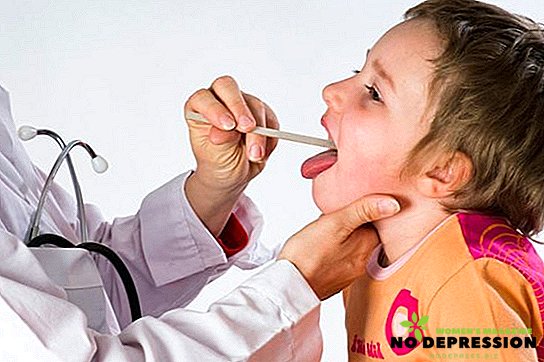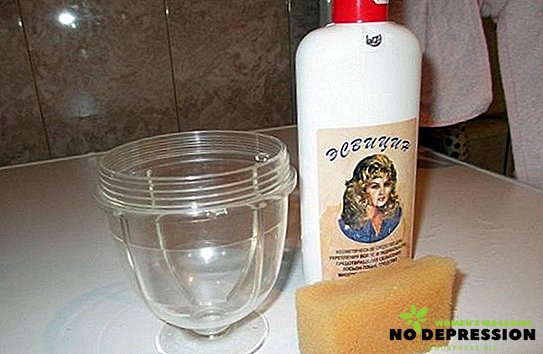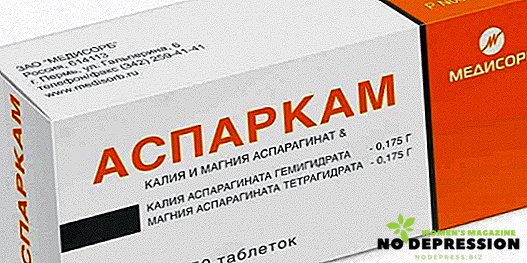Pregnancy is a special period in a woman’s life. It is not only about emotional and psychological experiences and changes, but also about physical ones.
It was at this time that the body is rebuilt, changed, and directs all its forces to preserve the child and his comfortable and proper development. Because of this, the mother’s immunity is very weak and prone to viruses and diseases. One of the most unpleasant manifestations is coughing.
What is dangerous cough during pregnancy
Cough, not only is it unpleasant, can be a symptom of a bacteriological or viral disease:
- bronchitis;
- pneumonia;
- flu;
- ARVI;
- allergic reaction;
- genital infection;
- gastric diseases;
- inflammation.
Any infection can cause serious harm not only to the mother's body, but also to the child. If you do not treat the cough and its cause, the disease can lead to problems with the health and development of the baby, as well as miscarriages, miscarriages and other terrible consequences.

If, however, treat a cough as a mild cold, the consequences can still be serious:
- During cough, all the muscles of the chest and abdominal cavity are tightened, which leads to an increase in the tone of the uterus and an increase in the risk of pregnancy failure;
- Increased tone leads to a worsening of blood flow and can lead to fetal hypoxia;
- Blood pressure rises, which negatively affects a woman’s health;
- Frequent coughing also leads to placental abruption and uterine bleeding.
In addition to the obvious negative effects of cough, it also enhances toxicosis, which is unpleasant. Cough can not be ignored and as soon as it appears it is necessary to immediately begin treatment.
How to treat a cough in early pregnancy
The first trimester is especially important for the health of the child and the mother. In this period of time, any cold and infection can cause irreparable damage to the baby. The consequences of a cold can provoke the development of a variety of pathologies of the fetus, up to those that are incompatible with life.
That is why even a small cough must be treated immediately. But how can this be done if drugs can also harm a child?
Of course, first of all it is worth contacting your doctor, who can prescribe a safe treatment based on complaints and test results, always taking into account the personal characteristics of the woman’s body.
In the early stages, light medicines are usually used, which are not capable of causing damage to the health of the child and vitamin complexes aimed at strengthening women's immunity. Herbal and synthetic drugs that are recommended for the treatment of cough in the early stages are provided in the table below.
| With dry cough | |||
|---|---|---|---|
| Herbal preparations | Vitamin complexes and nutritional supplements | Synthetic drugs | |
| Freely applied | Mukaltin Syrup "Althea" "Bronhinol"
| "Mammavit" "Pregnavit" "Bifidofilus Flora Force" | |
| Can be used, but there is no accurate data on the effect on the child | Gedelix "Bronhikum" "Herbion" (primrose syrup)
| "Libexin" | |
| Wet cough | |||
| Freely applied | "Doctor Theiss" (with plantain) "Bronchipret" (syrup) | "Mammavit" "Pregnavit" "Bifidofilus Flora Force" | |
| Can be used, but there is no accurate data on the effect on the child | Syrup and balsam "Evkabal"
| "Libexin" | |
As can be seen from the table, at this stage of pregnancy it is best to use drugs of plant origin. Before using any of these drugs, it is necessary to consult with your doctor!
How to treat a cough during pregnancy in 2 and 3 trimesters
At this stage of the child’s development, coughing, as a consequence of infection, cannot harm him. Of the serious consequences of a cold during this period, premature labor can be called, but this happens extremely rarely and in cases where the viral infection has not been treated for a long time.
Of the pharmacological drugs and food supplements in the 2 and 3 trimester use the same as in the first trimester. However, now you can add drugs of synthetic origin to them:
- Libexin;
- Syrup "Coldrex Nite" (only at temperatures above 38 degrees);
- "Bromhexine" (strictly after the 1st trimester);
- Omnitus (only in syrup!);
- Ambroxol Vramed.
These drugs are used for any kind of cough, as well as for severe colds and flu. Syrups are taken 4-5 times a day, but each drug has its own characteristics, so you should carefully read the enclosed instructions before use.
What can be treated with a strong cough and runny nose
As soon as the woman in the position feels cold, she needs to see a doctor as soon as possible. Even a small runny nose and cough should be treated immediately, because without treatment they can turn into a serious illness.
 For the treatment of cough during pregnancy, many of the drugs are contraindicated, so you can use only those that were prescribed by a doctor depending on the duration of pregnancy and the nature of the disease.
For the treatment of cough during pregnancy, many of the drugs are contraindicated, so you can use only those that were prescribed by a doctor depending on the duration of pregnancy and the nature of the disease.
It is possible to use some folk remedies (rinsing and inhalation with herbs, compresses, grinding).
For the treatment of rhinitis, it is necessary to wash the nasal cavity 4–5 times a day with salt water or herbal decoctions.
It is possible to apply drops that constrict blood vessels only in extreme cases, since the constant use of drops leads to serious impairments in the development of a child.
You also can not drip into the nose with the juice of onions, beets or carrots - this can cause burns to the mucous membrane.
Specific treatment of dry and wet cough
The main difference between dry and wet cough is sputum. With a dry cough, it is not there and therefore it is called dry or unproductive, because it does not remove mucus from the body. Dry cough is extremely debilitating and bad for the body of a pregnant woman. That is why expectorant drugs are prescribed for dry cough:
- Mukaltin;
- Herbion;
- "Coldrex Nite".
As an additional means that helps sputum can be used:
- inhalations with herbal infusions (you can just breathe over freshly boiled potatoes or hot water);
- gargling with saline and soda solutions.
- drinking plenty of warm water (which you can add honey and radish juice to)
If the treatment is respected, sputum will start to stand out soon and the cough will become wet. It is safer for health, because it does not irritate the throat so much, but it requires the same intensive treatment as dry.
For its treatment, it is necessary to use expectorant and drying drugs that will relieve inflammation and thin the sputum.
What drugs can not be used in the treatment of
There are pharmacological drugs that are strictly prohibited for use during pregnancy. These include almost all modern powders and cough pills:
- "Bronholitin";
- "Antigrippin-ANVI";
- "ACC";
- Ascoril;
- "Joset";
- "Influenza";
- Codelac;
- "Travisil";
- Glycodine;
- "Alex +";
- "Codterpin".
In addition, there are herbs and medicinal ingredients that also can not be consumed by pregnant women. Therefore, when buying any medicine, you must make sure that it does not contain:
- Hypericum;
- coltsfoot or pyrrolizidine;
- echinacea;
- ginseng;
- eleutherococcus;
- daisies;
- sage (in large quantities).
These herbs and medications can adversely affect the development of the child and the health of the mother.
For example, St. John's wort reduces sensitivity to analgesics, and at caesarean section, anesthesia will not be effective. Therefore, you should avoid drugs with a similar composition.
What can be applied from traditional medicine
Traditional medicine is often extremely effective in treating colds. No exception and the time of pregnancy. Therefore, to cure a cough or cold, women in the position can:
- use honey externally (in the form of compresses or rubbing) and internally (in tea or in pure form);
- drink plenty of warm milk and tea;
- use black radish juice with honey;
- gargle with a mouthful of herbs (plantain, calendula, a weak infusion of sage);
- gargle and rinse with water with soda and salt;
- make inhalations on herbal infusions (sequence, calendula, lime blossom) using a nebulizer or a simple kettle;
- rub the breast with special ointments or honey.

These are the most effective methods of treatment with traditional methods that can be used throughout pregnancy. But there are those methods that are strictly prohibited for pregnant women, because they can cause irreparable damage to the baby. These include:
- banks;
- mustard plasters;
- hot bathing or steaming;
- any physiotherapy;
- conducting inhalation at high temperature.
Prevention of cough during pregnancy
The best way to cure colds and coughs is to take preventive measures in time and not to get sick at all. How can I prevent disease? There are simple tips that will help the future mother to avoid colds:
- Avoid crowded places. It is people who are carriers of viruses and infections that are transmitted by airborne droplets, so it’s best to not appear in crowded places without contact with possible patients;

- If you cannot avoid contact with people, it is necessary to cover the mouth and nasal cavity with a mask;
- After returning home from the street, always wash your hands and rinse your nose and throat with boiled water (or saline);
- Avoid long trips and frequent climate changes;
- Regularly walk in the parks;
- Ventilate the room before bedtime and humidify the air;
- Do not supercool;
- Regularly visit the doctor.
It is better to follow these simple but effective tips, and during pregnancy not to think about anything but a baby!
Additional information on the treatment of cough and cold in pregnant women - in the next video.








